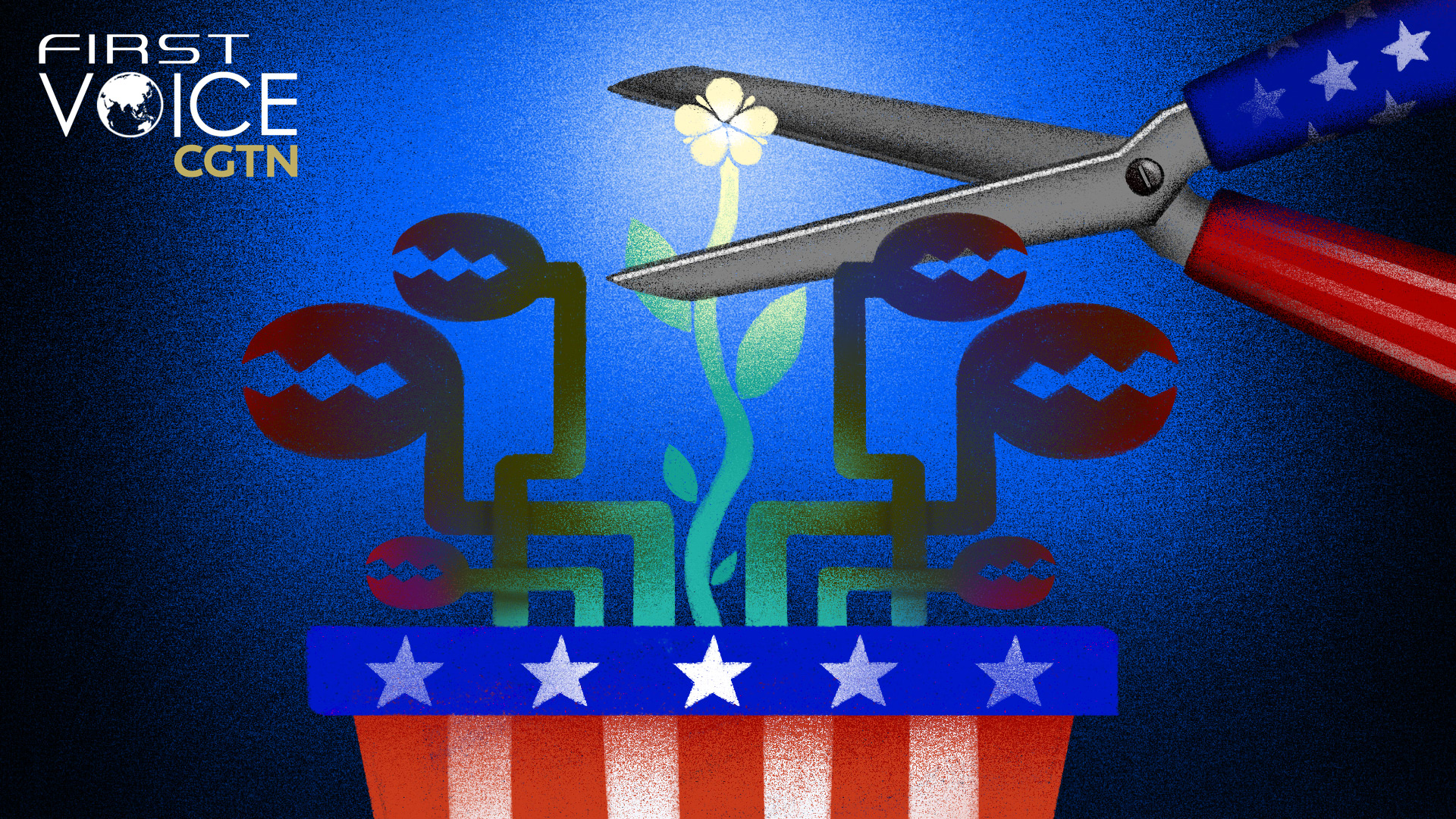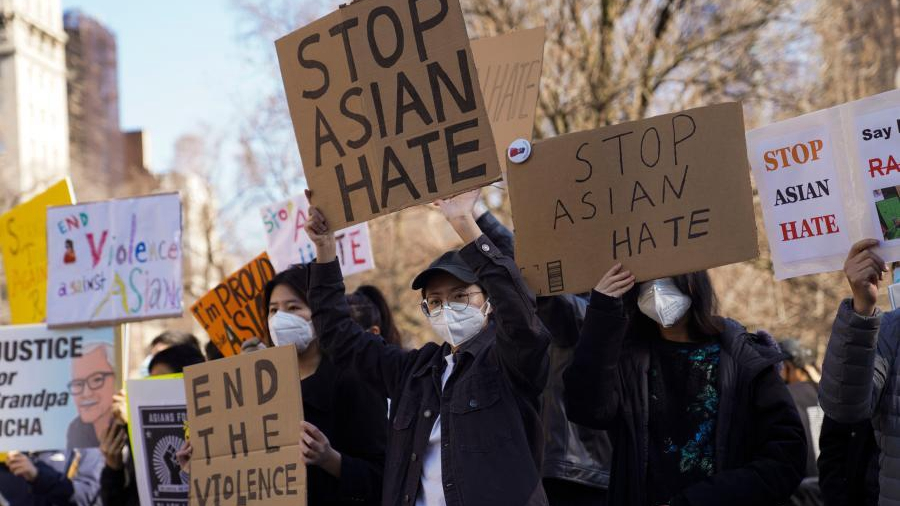
Editor's note: CGTN's First Voice provides instant commentary on breaking stories. The daily column clarifies emerging issues and better defines the news agenda, offering a Chinese perspective on the latest global events.
Over the weekend Chamath Palihapitiya, a minority owner of the Golden State Warriors, said, "Nobody cares about what's happening to the Uygurs." His larger point was that Americans should focus more on climate change and other issues that directly affect them, and focus on treating its own minority communities fairly. But that has been lost in the uproar over his unpopular opinion. Republican senators have predictably asked for Palihapitiya to be forced to sell his share, and accuse him of being complicit in a crime against humanity – even though no evidence has been put forward in any official forum to support that charge.
In a few short years, China's image in America has gone from an economic competitor of the U.S. to a cold war enemy – and in that time saying anything positive about the country has gone from commonplace to taboo.
Once, Americans took pride as their corporations made inroads into China's giant market. Now, corporations that operate in China are viewed with suspicion by a U.S. public that sees them as somehow unpatriotic. These corporations operate in fear that they will be forced to declare a public position that will either alienate Americans or Chinese.
Although the United States claims to value freedom of speech, everybody knows that certain areas of conversation are out of bounds. Crossing these red lines can end friendships, cost you a job, or even end your career, especially if you are a politician or public person.
Some of these red lines are justified, and serve the valuable function of protecting historically oppressed groups in society, like the taboo on overtly racist remarks. Others are more questionable, and serve to silence and discredit ideological opponents, or to protect vested interests.
For example, in the 1930s and 40s, support for socialist and even communist policies had major support among the American public, in reaction to the capitalist excesses that caused and exacerbated the Great Depression. But by the 1950s, association with a known communist was enough to end a career.

People take part in a protest against Asian hate in New York city, New York, U.S., March 21, 2021. /Xinhua
People take part in a protest against Asian hate in New York city, New York, U.S., March 21, 2021. /Xinhua
A similar sea change is happening in today's United States regarding attitudes toward China.
Until the presidency of Donald Trump, China was largely regarded as a formidable economic competitor but also a reliable trade partner. But Trump tapped into the populist tricks of harnessing resentment, racism and a fear of the unknown to turn Americans first against immigrants, then Muslims and against China. By the end of his term, Trump had blamed China for everything from COVID-19 to the collapse of America's manufacturing sector.
Joe Biden, before he was president, dismissed Trump's attacks on China as the nonsense they are. But Biden soon discovered that being soft on China was electoral suicide, and he too took a harder line toward Beijing. Now in 2022, Republicans and Democrats compete with each other to take the most extreme lines against China.
Conversation becomes impossible.
When former New York City Mayor Michael Bloomberg said that China wasn't a dictatorship during the 2020 presidential campaign season, his remark was immediately discounted out of hand. His reasoning was not even considered, nor did it ever become a source of public debate. After all, what scholar or China expert would risk ending their career and going on television to defend China's system when it is clear they would be immediately shouted down as a puppet of Beijing.
In the current atmosphere, nativist Republicans and economic isolationists who seek to decouple the economic ties between China and the U.S. do not need to argue a reasoned case about why this would benefit the American people. Simply smearing someone as pro-China is enough to silence them and win in the court of public opinion.
U.S. comedians tended a fortune and win mass audiences by exploring the gray areas of political correctness. But the current anti-China atmosphere couldn't be made funny at all. It is threatening to politicize the business operations of all private companies, and turn them into political weapons for U.S. politicians. Not only is the anti-China taboo leading to bad economic decisions that are hurting the U.S. and global economy, and fueling racism and hate crimes against Asians, it also may lead to misunderstanding and even direct conflict across the Taiwan Straits.
Right-wing politicians love to complain about how political correctness stifles free speech and leads to groupthink and bad decisions. That is exactly the result we can expect from the current taboo placed on any rational discussion about China.
(If you want to contribute and have specific expertise, please contact us at opinions@cgtn.com.)

